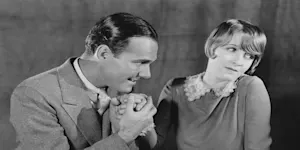What Makes This Word Tick
"Repine" is a gentle little word with a melancholic charm. It describes the act of expressing discontent or yearning for something that feels out of reach. It hails from a time when expressing one's inner turmoil was done with poetic subtlety rather than with loud complaints or tweets.
If Repine Were a Person…
Picture repine as an elegant Victorian gentleman, perhaps wistfully staring out a rain-dappled window. He's nursing a cup of slightly too-cold tea, pondering life's missed opportunities and unfulfilled desires. While he's not the life of the party, he's sure to provide excellent, if somewhat melancholic, company.
How This Word Has Changed Over Time
Once commonly featured in poetry and prose, "repine" has largely fallen out of everyday conversation, yielding to more vivid expressions of dissatisfaction. While people once repined quietly, today they'd more likely vent on social media or gripe with a close friend over coffee.
Old Sayings and Proverbs That Use Repine
Although not abundant in traditional proverbs, the spirit of repining is timeless. Phrases like "the grass is always greener on the other side" capture the essence of pining for what one doesn't have, a sentiment that aligns well with repining.
Surprising Facts About Repine
Did you know? "Repine" is related to the verb "pine," sharing the same root. While "pine" more directly conveys yearning or longing, "repine" adds a layer of dissatisfaction—making it doubly poignant.
Out and About With This Word
You might not hear "repine" at the local diner or book club, but it's right at home in a Jane Austen novel discussion. Or perhaps whispered among friends who savor the elegance of bygone linguistic flourishes while opining on life’s little nuisances.
Pop Culture Moments Where Repine Was Used
Though rare in contemporary pop culture, "repine" can be found in the poignant lyrics of folk songs and the dialogues of period dramas. It’s that perfectly placed word that captures a character’s subtle longing for days gone by.
The Word in Literature
"Repine" fits snugly into literature swathed in emotion and reflection. Think classic 19th-century novels, where characters frequently repined in dimly lit drawing rooms while journals absorbed their written laments about unrequited love and thwarted dreams.
Moments in History with Repine
Imagine how "repine" would fit into the narrative of the Great Depression—a period where longing for prosperity and peace was evident. Though not explicitly said, the stoic, silent determination of that era bears witness to many a repining heart.
This Word Around the World
In French, one could express a similar sentiment with "se lamenter," while in Spanish, "lamentarse" articulates comparable shades of wistfulness. Across cultures, the human experience of longing and discontent is universally understood, even if the words differ.
Where Does It Come From?
"Repine" traces its roots to Middle English, stemming from the combination of the prefix "re-" meaning "again" and "pine," indicating a continuous state of yearning or grief. This etymology highlights how the word conveys recurring or intensifying dissatisfaction.
How People Misuse This Word
People sometimes confuse "repine" with more active expressions of discontent, such as "complain" or "lament." However, the nuance of "repine" lies in a quieter, more personal dissatisfaction rather than loud grievances.
Words It’s Often Confused With
Complain: More vocal and public in nature, whereas repine has an internal, reflective quality.
Lament: Tends to imply a more active mourning or expressing grief.
Yearn: Focuses on longing, without the additional layer of dissatisfaction that "repine" carries.
Additional Synonyms and Antonyms
Synonyms for "repine" might include "grieve" or "fret," while antonyms could be "rejoice" or "celebrate." Each provides a window into the emotional landscape "repine" captures so subtly.
Want to Try It Out in a Sentence?
She sat by the window, staring into the distance, lost in thought, silently repining for the past and all it held.
















